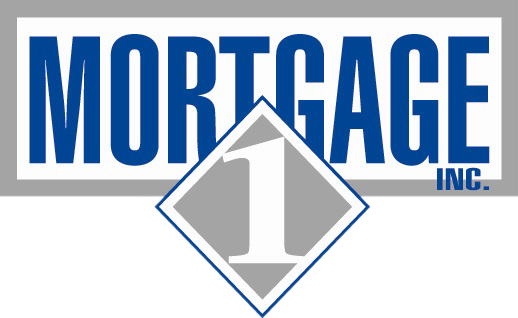
Changing Lives Is What Inspires Mortgage 1 Loan Officer Lindsey Smith
November 23, 2021
Welcome Those Who Joined Mortgage 1 in 2021
December 9, 2021Confused about the do’s and don’ts of buying a home? We look at 10 things a homebuyer should know before they think about putting in an offer.
There are some things it’s okay to purchase on impulse. A home or any piece of real estate isn’t one of them. Not only are potential home owners looking at 15 to 30 years of payments, there’s also upkeep, maintenance, moving expenses … the list goes on and on. When it comes to purchasing a home, you have to do your homework.
So, before you even start looking for a home to buy, what do you need to know? We’ve made a list of 5 things home buyers should do, and 5 things they should avoid.
| Buying a home doesn’t have to be intimidating!
Our experienced mortgage professionals can help you create a step-by-step plan for home ownership. Find a loan officer today or call 866-532-0550 or to discover your options. |
5 Things to Do When Buying a Home
So, you’ve decided to buy your own place. What should you do next?
- Set a Realistic Budget. First, examine your finances: How much money is coming in? How much are you spending each month? If you haven’t already, can you start saving for a downpayment? Then, determine how much you can afford to pay for your home. Use an affordability calculator to estimate the monthly payment and overall home price you can manage.
- Go Mortgage Shopping. Now that you know your financial state, start looking at mortgage offers – yes, even before you start house shopping! This will give you a good idea of the price range you need to be in. It’s best to compare rates from different mortgage companies; you might get very different results from each one.
- Get Mortgage Preapproval. Before you start house shopping, it’s a good idea to have a letter of preapproval from your mortgage lender. This verifies your creditworthiness and the amount you can borrow, which puts you in a stronger position when it’s time to make an offer.
- Itemize All Costs. You’ll need more than your downpayment and your monthly mortgage payment when you close on a house. Don’t forget to add closing costs to your budget; these could include title insurance fees, attorney or application fees, private mortgage insurance, appraisal fees, homeowner’s association fees, and more. Overall, you can expect to pay between 3 and 6 percent of your home’s price in closing costs.
- Save and Plan. Although help with your downpayment is available, it’s always a good idea to save as much as you can; the greater your downpayment amount, the more favorable your loan terms will be. If possible, try saving your mortgage payment amount each month for at least three months; this will help you see how that will impact your other spending habits. You can learn more about saving for a mortgage downpayment here.
5 Things to Avoid When Buying a Home
Great! Now that you know where you’re heading, how can you make the smartest decision? Start by avoiding these five common mistakes:
- Going Home Shopping First. Don’t make the mistake of shopping without a budget – you might have unrealistic expectations and set yourself up for disappointment when you find out what you can actually afford.
- Falling in Love with One House or Neighborhood. Flexibility is a important when you’re home shopping; sometimes a slight distance outside your preferred area can be a lot more affordable or get you more house for your money.
- Skipping the Home Inspection. On the other hand, maybe you’ve found a home you love in an ideal location. Even so, don’t let love blind you to potential problems; get a home inspection before you commit to buying. This can spot very expensive issues early and help you protect yourself financially.
- Ignoring Mortgage Options. There are more options available than just conventional mortgages; government-backed mortgages can save you thousands of dollars and be more accessible if you don’t have perfect credit. You can learn more about different types of mortgages here.
- Not Checking Your Financial Health. Credit reports contain errors. Your financial health changes over time. Before you start thinking about house shopping – and well before you apply for a loan – pull your credit reports and make sure everything is correct and up to date. If necessary, work with a financial professional to ensure you’re doing everything you can to get a favorable mortgage rate.
We Can Answer Your Mortgage Questions
A lot of factors go into the mortgage process. At Mortgage 1, we can help you figure out what you can afford and what you can do to get the best deal possible. Contact us today and learn your options!





